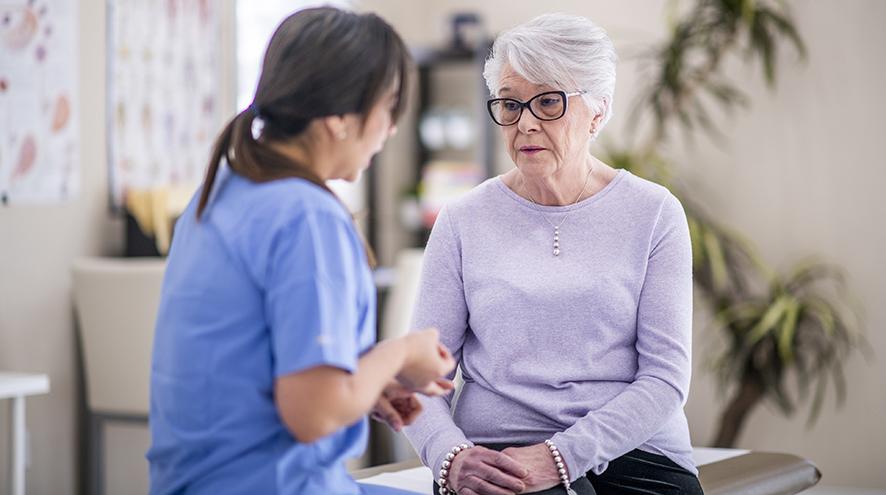Reacting to your diagnosis
Your doctor has just told you that you have dementia. This may come as a shock – or, you may feel relief at finally being able to put a name to your symptoms.

Should you be diagnosed with dementia, know that you are not alone. The Alzheimer Society has the education and resources to support you in this new chapter of your life.
Find out about the help and support that's available to you.
Emotions you may experience
Hearing the news that you have dementia will likely bring about a wave of emotions. You might experience and re-experience these emotions in any order.
1. Shock and numbness
A diagnosis of dementia can come as a shock, even if you have been half expecting it.
2. Disbelief and denial
"This can’t be happening to me!”
“It isn’t as bad as the doctors say.”
In the beginning, denial can be a positive force. We use denial to shield ourselves from news too painful to bear, as we adjust inwardly to our new reality. However, living in denial will not help you live well with dementia.
3. "A ‘hurricane’ or a ‘roller-coaster ride’ of uncomfortable feelings of anger and frustration; a trajectory through emotional devastation”
It takes time to sort through the many reactions and emotions, including frustration and anger at the situation, at the disease, at others and even at oneself.
However, you may also experience a sense of relief to know there is a medical reason behind the changes you've noticed in your thoughts and actions.
4. Despondency and sadness
Everyone will experience periods of feeling:
- Helpless and powerless in the face of the diagnosis: confronting their own limitations.
- Intensely sad when considering all the losses this disease has caused and may cause as time goes on: The healthy, happy years that are past and the lost years of the future.
- Worried and fearful: “What’s going to happen next?"
5. Acceptance
By accepting your diagnosis rather than avoiding it, you can begin to adjust to your new situation. Acceptance will involve recognizing and reconciling that you will experience changes to your abilities, and there is no current effective treatment or method to stop these changes.
There is no time limit to the range of reactions and emotions that you may go through when receiving your diagnosis. However your immediate response, you will likely be experiencing a variety of emotions throughout your journey with dementia. Having these emotions is normal, and is part of the lived experience that all people diagnosed with dementia will face.
However, some of these emotions can lead to stress and depression, which can affect your quality of life. Know that there are ways you can manage these emotions so you can live well with dementia.
Learn more about managing emotions and the stress of living with dementia.
What happens next?
After telling you the news, your doctor should then connect you to your local Alzheimer Society through referral programs such as First Link®. Your doctor should also outline the first steps you should be taking.
If this doesn't happen, you can reach out to us directly. Our website has many resources and information for you to learn more about dementia and can connect you with your local Society.
More useful links and resources
Getting a diagnosis. Alzheimer Society of Canada. This downloadable brochure summarizes what you need to know about getting a diagnosis, including how to prepare for your assessment and what to expect during the diagnostic process.
